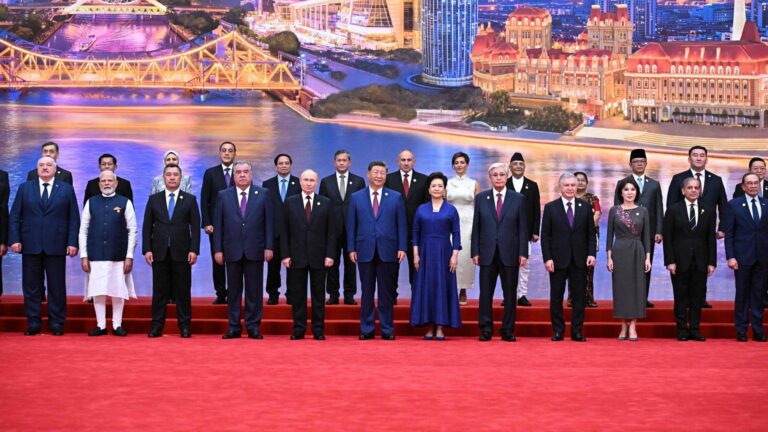China is aiming to deepen its strategic partnership with Brazil and enhance collaboration within the BRICS bloc, Reuters reports. As geopolitical and economic landscapes evolve, Beijing is emphasizing closer coordination with its key allies to promote shared development goals and address global challenges. This renewed focus underscores China’s commitment to strengthening multilateral ties amid shifting international dynamics.
China Aims to Deepen Economic and Political Ties with Brazil Amid Global Shifts
China is actively pursuing a multifaceted strategy to enhance its partnership with Brazil, aligning closely with its broader vision for the BRICS coalition. This endeavor comes as global economic and political landscapes undergo rapid transformation, prompting Beijing to seek stronger ties with emerging markets. Recent dialogues indicate China’s commitment to fostering cooperation beyond traditional trade, encompassing innovation, infrastructure, and sustainable development initiatives. Both nations are expected to prioritize collaborative projects that leverage Brazil’s vast natural resources along with Chinese technological expertise, aiming to create mutually beneficial outcomes in an increasingly competitive global arena.
Key areas earmarked for intensified cooperation:
- Enhanced trade facilitation through streamlined customs and logistics
- Joint investments in renewable energy and climate resilience
- Expansion of technological exchange programs, particularly in digital economy sectors
- Strengthening political dialogue within BRICS frameworks to promote global stability
| Sector | Brazil’s Strength | China’s Contribution |
|---|---|---|
| Agriculture | Rich arable land and bio-diversity | Advanced agricultural technologies |
| Energy | Abundant renewable resources | Investment capital and infrastructure expertise |
| Manufacturing | Raw materials and export capacity | Supply chain integration and innovation |
Strategic Collaboration within BRICS Seen as Key to Counterbalance Western Influence
China is intensifying efforts to forge a unified front with Brazil and fellow BRICS nations, aiming to enhance economic and political cooperation amid shifting global power dynamics. Beijing’s strategy emphasizes deeper alignment on trade policies, technological exchange, and infrastructure projects-core areas where Western-led initiatives have traditionally dominated. This recalibration seeks to bolster mutual growth and present a cohesive alternative to Western influence in international affairs.
Key focus areas within this evolving partnership include:
- Joint investment frameworks to facilitate cross-border development
- Strategic resource sharing for energy and raw materials
- Coordinated diplomatic initiatives to strengthen political leverage on global issues
- Innovation alliances supporting emerging technologies and sustainable growth
| BRICS Countries | Key Collaborative Focus | Projected Impact |
|---|---|---|
| China | Trade & Infrastructure | Enhanced regional connectivity |
| Brazil | Resource Management | Boosted agricultural exports |
| India | Technology Innovation | Strengthened digital economy |
| Russia | Energy Cooperation | Greater energy security |
| South Africa | Political Coordination | Amplified global diplomatic presence |
Experts Recommend Enhanced Infrastructure Investment and Technology Exchange between China and Brazil
Leading experts emphasize that ramping up infrastructure investments and fostering deeper technology exchanges between China and Brazil could serve as a critical driver for sustainable economic growth in both nations. By leveraging China’s vast experience in large-scale infrastructure projects and Brazil’s rich natural resources and emerging market potential, the partnership aims to create a more integrated and resilient supply chain network. Key areas of focus include high-speed rail development, renewable energy systems, and digital connectivity enhancements, which together promise to bolster trade efficiency and regional competitiveness.
The bilateral collaboration is expected to facilitate knowledge sharing in cutting-edge fields such as artificial intelligence, 5G telecommunications, and green technologies. Experts point out that joint ventures and innovation hubs could accelerate the adoption of smart infrastructure solutions tailored to the unique demands of Latin American markets. Below is an overview of potential project priorities identified by industry leaders:
| Sector | Focus Area | Potential Impact |
|---|---|---|
| Transportation | High-Speed Rail & Logistics | Faster trade routes, reduced costs |
| Energy | Renewables Integration | Increased sustainability, energy security |
| Technology | 5G & AI Applications | Enhanced connectivity & smart solutions |
| Urban Development | Smart Cities Initiatives | Improved quality of life, efficient resource use |
Wrapping Up
As China seeks to deepen its partnership with Brazil and reinforce collaboration within the BRICS framework, the developments underscore Beijing’s broader strategy to enhance multilateral ties and economic cooperation among emerging markets. Analysts will be watching closely how these efforts unfold amid shifting global dynamics, with potential implications for trade, investment, and geopolitical alignment in the years ahead.




